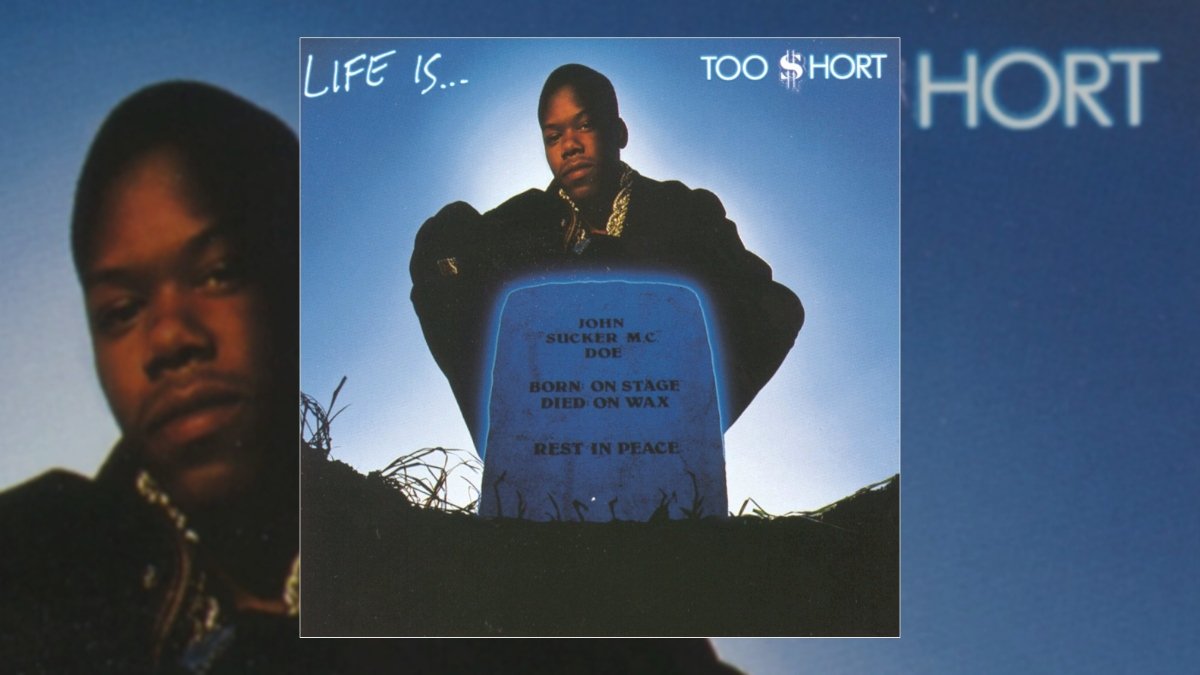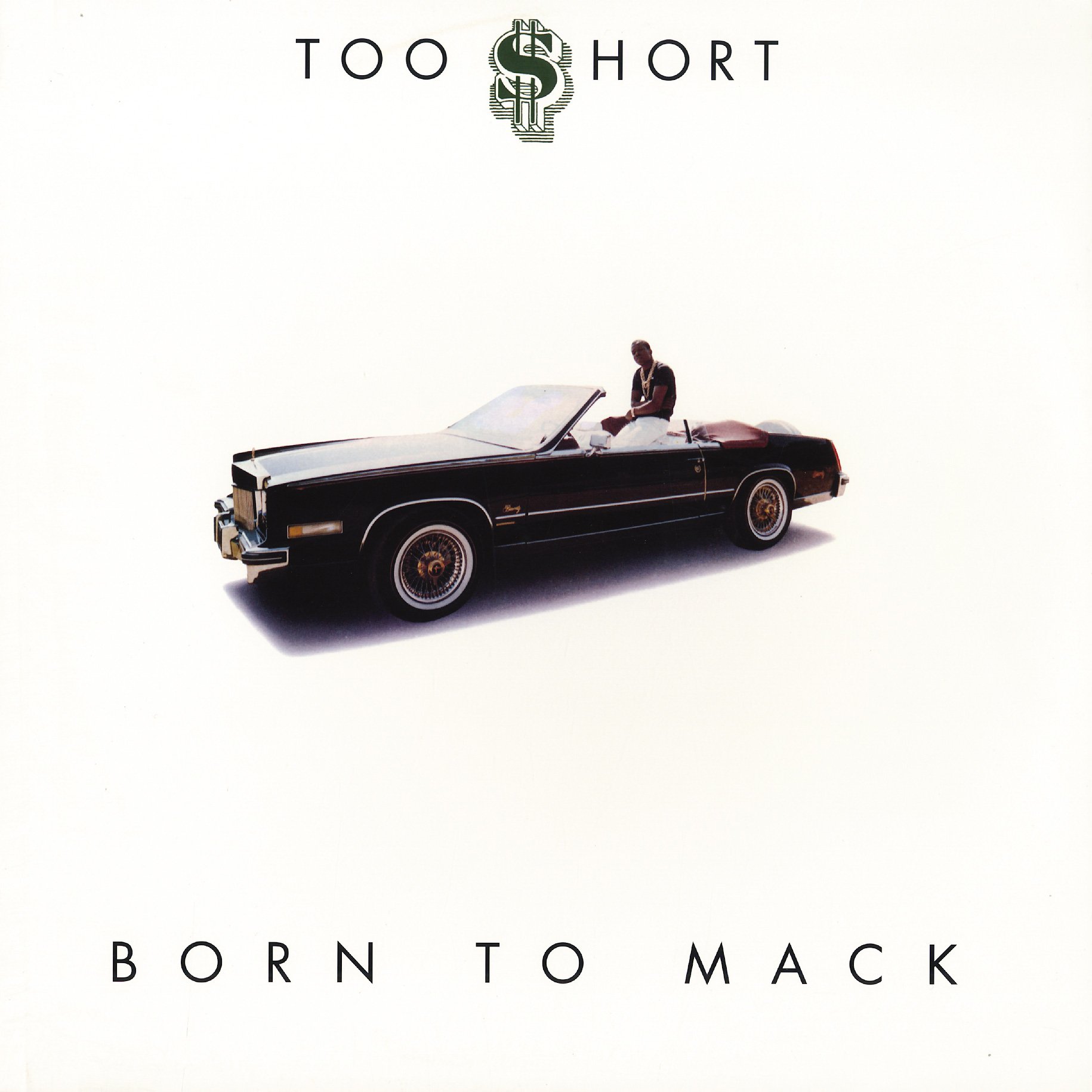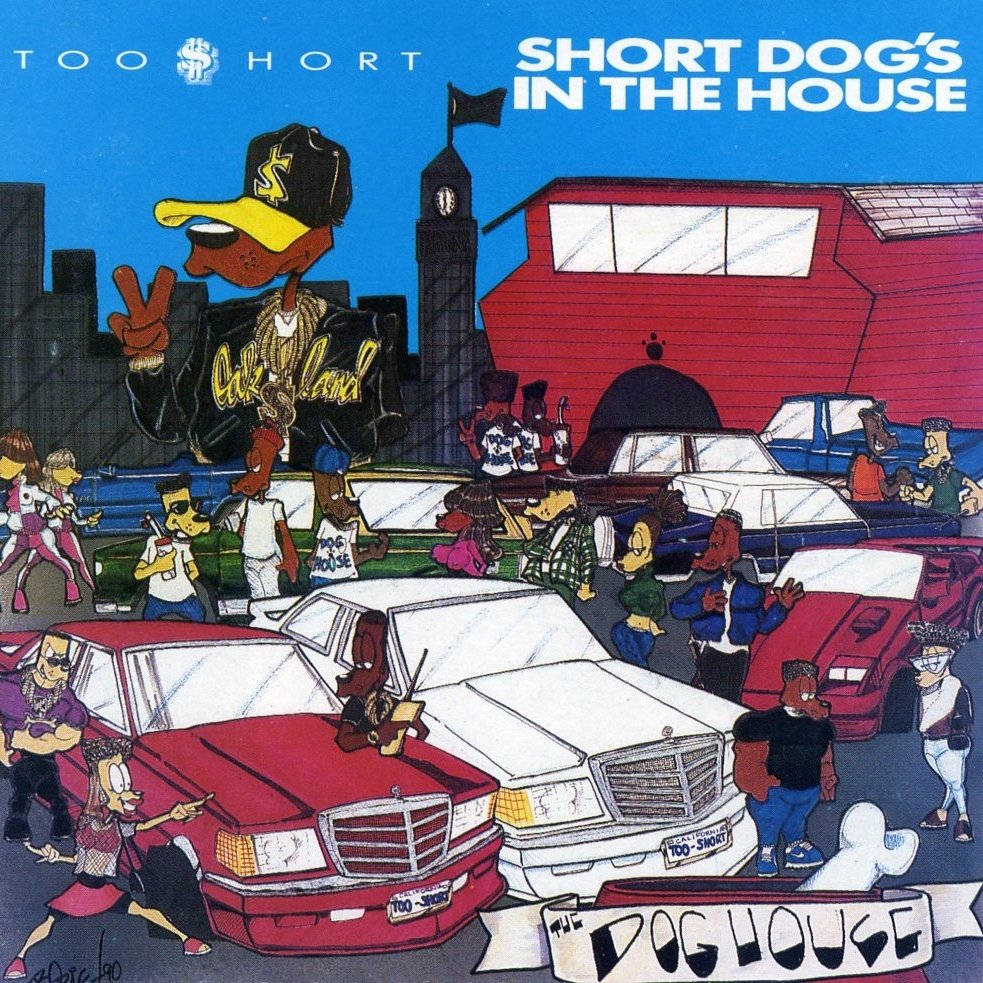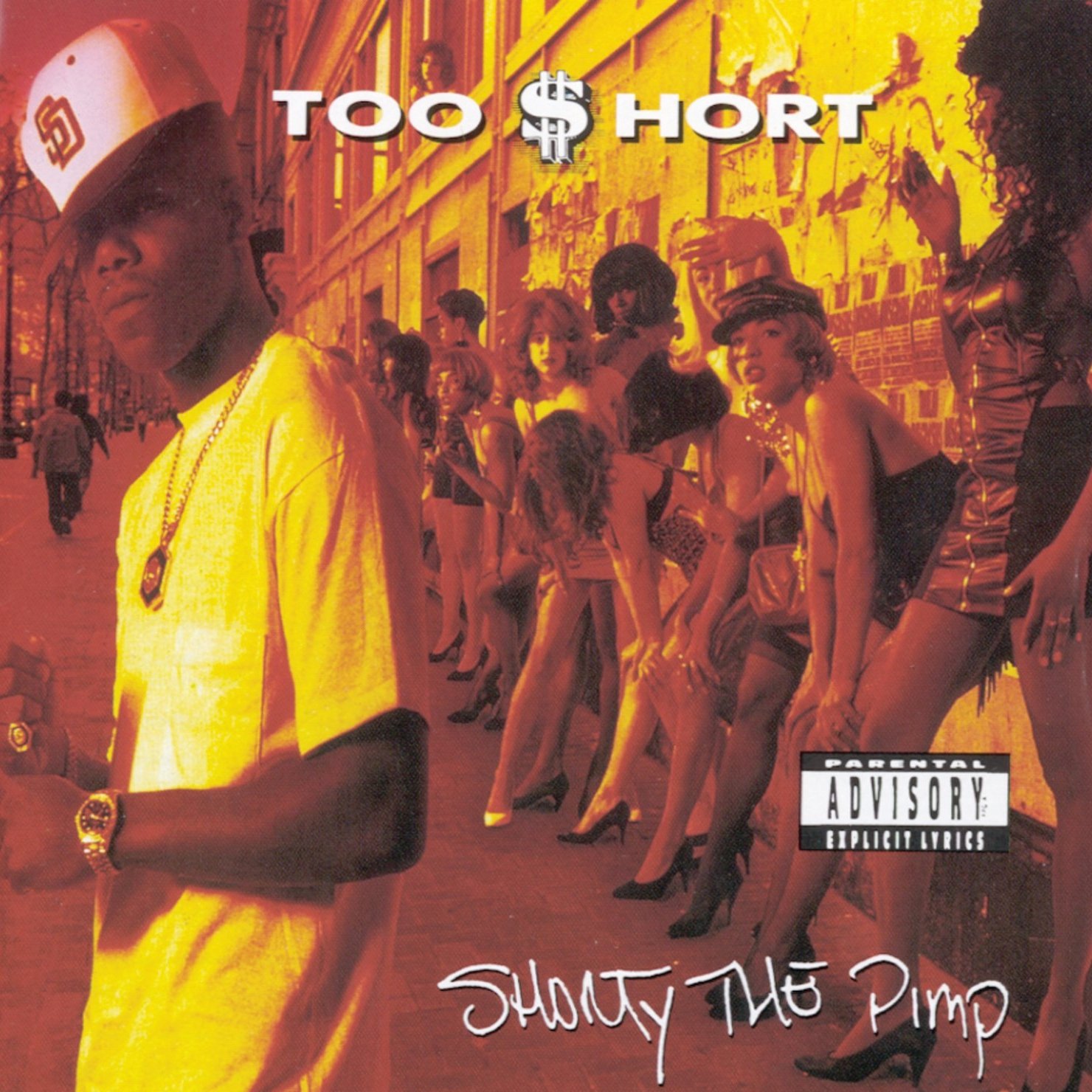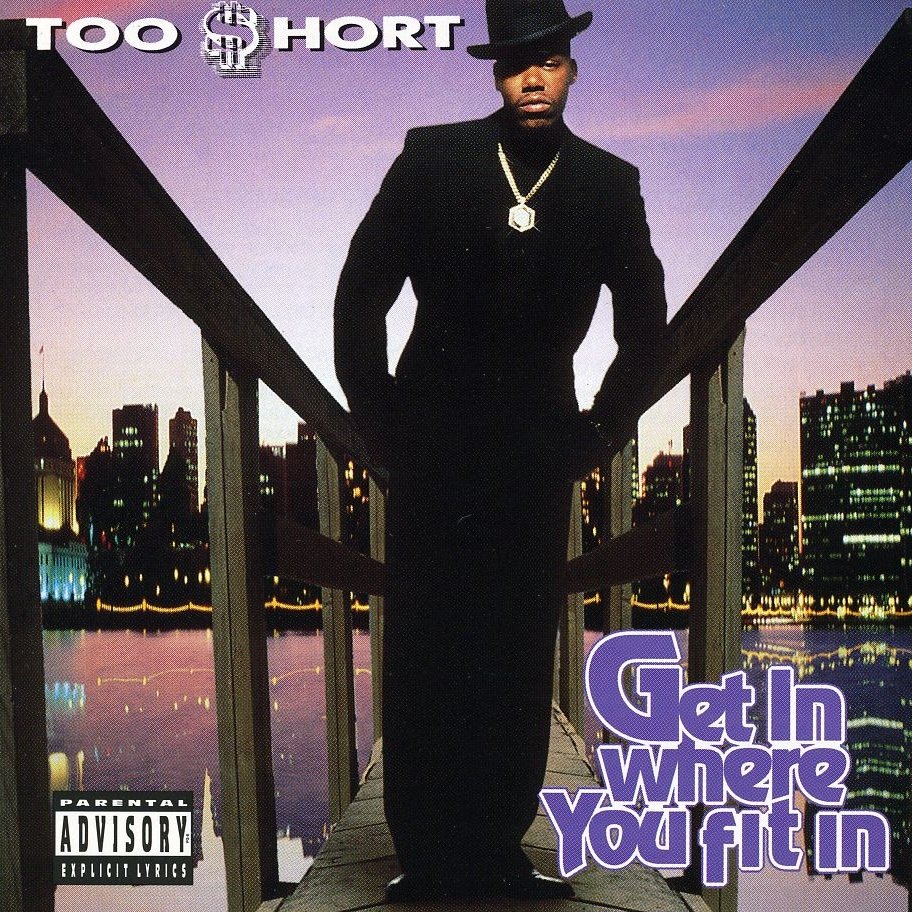Happy 35th Anniversary to Too $hort’s fifth studio album Life Is…Too Short, originally released by Jive Records January 31, 1989. (Editor’s note: The album was originally released via Dangerous Music in 1988, but Jive Records granted it wider distribution in January 1989.)
Life Is…Too Short has defined the legacy of Todd “Too $hort” Shaw. It’s not his first album, or even his third. It’s actually his fifth. It’s arguably not his best album; that would be either Short Dog’s In The House (1990) or Get In Where You Fit In (1993). It’s his highest selling album, certified as double platinum, but truthfully, it doesn’t feature his signature song; that would be “Blow the Whistle” from the 2006 album of the same name.
But Life Is…Too Short, released 35 years ago, is one of the most important albums in Bay Area hip-hop history and one of the most quintessentially “Oakland” hip-hop albums ever.
Life Is…Too Short is the cornerstone on which all of Bay Area hip-hop was built. Chances are your favorite Bay Area rapper grew up listening to it. If not, the Bay Area rappers that your favorite Bay Area rapper was influenced by grew up listening to the album. It spawned the Bay Area hip-hop scene as it’s known today.
By the time Life Is…Too Short dropped, $hort was a local superstar, renowned for his work ethic and dedication to the hustle of selling his tapes. After releasing three albums on the 75 Girls record label, he dropped Born To Mack (1987) independently on Dangerous Music, his own imprint. The album is best known for the song “Freaky Tales,” the sex-filled track that helped define Short’s persona. After Born To Mack sold 50,000 copies throughout the Bay Area without radio play or any sort of traditional promotion, $hort got the attention of Jive Records, who promptly snapped him up.
The album is a love letter to the city that Too $hort adopted as his own; he moved to Oakland from Los Angeles during his younger years. He namechecks prominent local streets, neighborhoods, housing developments, jewelry stores, restaurants, pimps, players, hustlers, and motorcycle clubs. The result represents Oakland like no album had done before and few have since.
The videos Too $hort filmed for Life Is… portray Oakland in all of its gritty, pre-gentrified glory. They depict Too Short and his homies rolling through the city, filming local landmarks, both well-known and those off the beaten path, many of them in East Oakland, still considered the “rough” part of town.
Listen to the Album:
Life Is… is divided into the “Todd Shaw” and the “Too $hort” sides, which was a clever way of saying a “clean” and “dirty” side. Short said in Brian Coleman’s Check the Technique that the album was designed to introduce the audience to Todd Shaw in its first half and the character of Too $hort throughout its second. And much of the album is built on the contrast between these personalities. Todd Shaw, the socially responsible, fiscally successful young Black man who builds a growing empire based on the deeds of the brash and crass Too $hort. As he states on “Nobody Does It Better,” “Call me ‘the dirty rapper,’ I’ll say, ‘Sure.’ / But I’m a young black entrepreneur.”
Short does a good job of exploring all facets of his persona, as the subject matter of Life Is…Too Short successfully combines tales of positivity, reflections on poverty, sex raps, and premium trash talk. Though he may not be a lyrical surgeon, he balances humor, raunchiness, and heartfelt poignancy, and he’s never boring. $hort himself handles most of the album’s production, receiving help from producers/musicians Al Eaton, Ted Bohannon, and Randy Austin.
Like many of $hort’s albums, Life Is…Too Short has only nine or so tracks, but most of them are pretty lengthy, especially by today’s standards. Nothing runs shorter than four minutes, and most exceed five-and-a-half. Given these lengths, Too $hort has the opportunity to say as much as he needs to and gives the album’s production time to shine.
The album’s title track is what turned Too $hort into a superstar. Like his earlier material, it’s simple, stripped down hip-hop, featuring a live replaying of Average White Band’s “School Boy Crush” and deep, thumping bass hits. The hook, which is just $hort Dog repeating his name with added studio effects, is downright catchy and certainly memorable. With his raps, Too $hort describes his success, hoping to inspire others who may live lives of crime. Extolling the virtues of living positive and pontificating on the intrinsic value of life have never been particularly common topics of rhyme, even during the late ’80s. Few other rappers have articulated the importance of recognizing self-worth as simply as $hort does here.
“I Ain’t Trippin’,” the album’s second single, is an exercise in musical and lyrical minimalism. Over an understated, pulsing bassline, $hort practically whispers his raps. He details his grind to achieve fame, rocking house parties and East Oakland hotspots, going from “riding the bus” to “on the gas.” He also tells of efforts by his “haters,” who spread false rumors that he’s a crackhead and studio gangster. The extended video version of the song, featuring a then-young stand-up comedian Mark Curry is even more entertaining, as the future “Mr. Cooper” jokes about spotting $hort Dog with “a base-pipe the size of a bicycle pump.”
Tracks like “Rhymes” and the aforementioned “Nobody Does It Better” showcases $hort paying sonic homage to early ’80s hip-hop pioneers. The former was influenced by Run-DMC, featuring $hort dropping over four minutes of rhymes over cracking drums and furious scratches by DJ Universe a.k.a. Crazy Rak. $hort at times sounds like he’s coming off the head, frequently incorporating phrases like, “Rhymes, I keep ’em coming” and “I’m an emcee rapper.” It’s also one of $hort’s liveliest lyrical performances.
Enjoying this article? Click/tap on the album covers to explore more about Too $hort:
The “Too $hort” side of Life Is… shows $hort’s continued evolution as a “dirty” rapper, both musically and lyrically. Most of the subject matter on the album’s second side isn’t particularly enlightened, but it’s creative and often funny. As with many of the great dirty rappers, $hort possesses a charisma that allows him to kick pretty offensive rhymes and still have the audience eating out of his hand.
With “Don’t Fight the Feelin’,” $hort transforms the One Way song of the same name into what was probably the raunchiest male/female adversarial rap track recorded at the time. $hort trades sexually explicit, and downright insulting, verses with Entice and Barbie of the local female duo Danger Zone. He’s backed up by Rappin’ 4-Tay, who, years later, would achieve fame on his own with “Playaz Club.” The album-closing “Pimp The Ho” also finds $hort re-interpreting another early ’80s R&B hit, this time Cameo’s “Keep It Hot.” The song functions as the unofficial third part of his “Playboy Short” series, as the subject matter is self-explanatory.
“CussWords” is the album’s best track, and one of my favorite Too $hort songs ever. Here $hort kicks nearly seven-and-a-half minutes of continuous raps, few pauses and no hooks. As the title suggests, yes, it’s practically a non-stop stream of curses. He makes the direction of the song clear with its opening lines, rapping, “To all you bitches, hoes, and all that shit / Here’s another rap that I’m ready to spit.” The song was shockingly dirty for the time. Just about every Bay Area kid who owned this album has a story about the time when their parents walked in just as Too $hort explains in extremely graphic detail how Nancy Reagan performed oral sex on him.
Even through the tales of fellatio by the former first lady, “CussWords” sports Short’s best lyrical performance of his career. For one, he’s in peak form when it comes to dissing pretenders, as he raps, “Think I'm faking, but I’m taking all you sucker emcees / to the end of the world and push you over” and later proclaims, “you’re a… no rapping… no rhyming… / Played out fake ass simple Simon / I never understood one word you said / But you're swearing up and down that you're killing me dead.”
$hort also laments the ravages of crack cocaine and street violence on the Oakland community during the song. He explores this territory further on “City of Dope,” but here he’s devastatingly effective in just eight bars, rapping, “So much death in the Oakland streets / Am I gonna live ‘til next week? / Will I get shot by a dope fiend / Trying to get high, trying to steal my ring? / I really can't say, cause I don't know why / People out here dropping dead like flies / I used to see a home boy, give him five / Now I say, ‘Man, you still alive?’”
The heights that Too $hort continued to reach and the lengthy career he subsequently developed are based on the massive success of Life Is… From the late ’80s through the early to mid ’90s, a slew of Oakland-based rappers signed with Jive, which was arguably enabled by the triumph of Life Is… Too Short also used the album’s success to continue to grow the Dangerous Crew, as he compiled a collective of like-minded producers and rappers.
The success of Life Is…Too Short had ripples that went beyond the success of Bay Area hip-hop artists. Rappers like Master P and other have cited Too $hort’s ability to transform his local independent success to national acclaim as inspiration to strike out on their own instead of chasing a record deal. It’s a legacy that continues to resonate today and few rappers have accomplished more in their careers than Too $hort has. And it all started from slinging dirty raps to his eastside fans.
LISTEN:
Editor's note: this anniversary tribute was originally published in 2019 and has since been edited for accuracy and timeliness.

